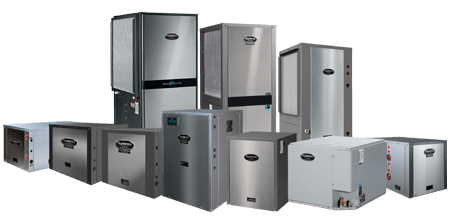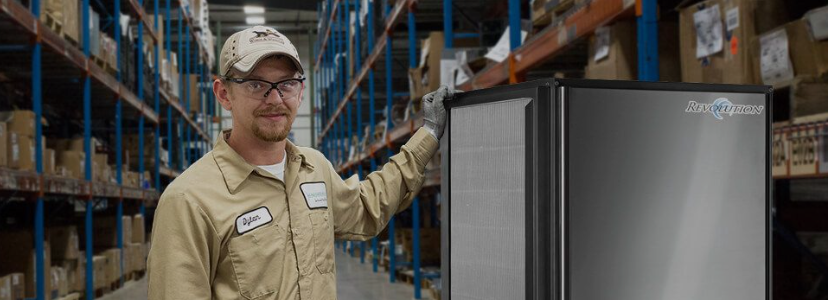How Much Does a Geothermal System Cost?
- Valerie Rogers
- May 9, 2021
- 10 min read
Updated: Jan 12
The 8 Questions to Know to Ask

The number one question I get asked the most in the geothermal business is: “How Much Will a Geothermal System Cost Me?” I wish it were as easy as looking at a price tag on a gallon of milk, but it is more complicated -and definitely much more interesting – than a gallon of milk.
Notice the title is not: “How Much Does a Heat Pump Cost?” That’s because heat pumps can be driven by different sources – Air, Water, Earth and Fire. Yep. All four elements can be the heat source for a heat pump.
Air Source Heat Pumps are also a popular choice for many because the cost can be much less than a full ground source heat pump system.
For geothermal, it is not just the heat pump that you are paying for, you are creating an entire heating and cooling system utilizing the Earths natural ground temperature. Geothermal systems are more complex than “just a heat pump”. There are many other costs associated to ensure the most efficient and green system is installed to provide you comfort in your home. Your house must work as a complete unit and this includes, wells and loop sizing, placement of supplies and returns, and accurate ductwork design. The end goal is to feel the comfort in your home – not see or hear it.
Some searches on the internet will state that a geothermal system will cost between $10,000 and $30,000. Other companies and sources state that their geothermal systems cost in Connecticut is between $18k-$30k. In our experience, this is misleading and inaccurate, and I don’t find it particularly helpful. You, as the customer, need to drill down all these "quickie numbers." For instance, is that $18K number before or after rebates and incentives? Does that $30K price tag include 2 ground source heat pumps or one? Does that number include well drilling? What are the depths of the wells? And why should I care about the depths of the wells? Is the entire system eligible for the federal tax incentive, or just a portion?

But I suppose, in all fairness, it is similar to asking Google the question:
"How much does a wedding cost?”
Since 1983 King Energy, LLC has been installing geothermal systems in Connecticut. Actually, it’s all we do. So, we know a lot about how much goes into creating and designing the best geothermal system for your home.
Would it mean anything to you if I said the average cost of our geothermal system is $61,200? What questions might you have when you see that number?
Let’s Break it Down!
In this article we will explore the following 8 elements that go into answering the question of “How Much Does a Geothermal System Cost?”
1) New or Existing House
5) Equipment

1) New or Existing Home?
The first question we need to know is, are you building new or retrofitting your existing home? We believe that a geothermal system is the best heating and cooling system to be installed in any new construction. Period. If you are building new, geothermal is a no-brainer. When building new, do not skimp on insulating your home. (Learn more here on why insulation is so important).
Would it mean anything to you now, if I said the average cost of our new construction geothermal systems are $63,400? What other questions might you have when you see this number?

2) Heating & Cooling Calculations: The “Magic” Number
Regardless of whether you are building new or changing out your “end-of-life” fossil fuel equipment, there is one number that is King. It holds the majority of the power in accurately determining the answer to the question of: How Much Does a Geothermal System Cost?
It is called the Heat Load Number (sometimes referred to as heat loss.) I like to call this the “magic number” because it is. Everything revolves around this number. That’s a lot of pressure for one number, but truth-be-told, it is a really important number. But why? In short, this one number tells us how tight your home is. That is important because if your home has a high heat loss number, we need to increase the size of the heat pump, which in turn will increase the size of the loops, which in turn begs the question of how much air flow can comfortably blow in the ductwork? All of this has a price tag.
King Energy will conduct a completely free engineered Manual J calculation report on your home to ensure we are designing the best geothermal system for your unique home.
Dig Deeper Here: “The Magic Number in Geothermal: What is a Heat Load Number?”

3) To Duct or Not to Duct?
Most geothermal systems distribute warmth and cooling via ductwork. Ductwork is- hands-down-the most cost effective and efficient distribution method for a geothermal system. Why? Simply because you now have one source (Air) for heating AND cooling.
Can you use your existing baseboard or radiators for geothermal heating? The short answer is yes. But you will need to add about three baseboards stacked on top of each other to achieve the heat needed. The cost is high. Anything is doable for a price. Then you need to potentially think about, cooling. You can not achieve geothermal cooling with the distribution method of baseboard or radiators.
An important question in an existing home, is: “Do you have ductwork?” If the answer is no, you can plan on your geothermal system cost increasing anywhere between $13,000 and $22,000 depending on the size and style of your home. HVAC stands for Heating-Ventilation-and Air Conditioning. All HVAC systems move air, which is why the acronym includes "V" for ventilation. We measure airflow in cubic feet per minute (CFM), and we use this measurement to match the size of your geothermal system to the size of your home. An airflow that's too small won't provide adequate heating or cooling, while one that's too big will cycle on and off too frequently, and the end result in both cases is wasted energy, no dehumidification, poor circulation and excessive noise. Who wants that?
Duct work is a key component to cost of your geothermal system.
CASE STUDY #1
Let's drill down the differences
"JR vs. KG"
To understand how fluctuating pricing can be, let's take a look at two homes in a true King Energy Case Study Example from 2021.

Both homes have existing duct work, are roughly the same size, and both homes require a 5-ton. The glaring difference is that "JR" only needs one 5-ton heat pump, while "KG" needs two units - one in the basement and one in the attic. This is because the "KG" home could not find a direct way to link duct work from the basement up through the first floor and then up into the second floor. "KG" required additional equipment, time/labor and materials. It also required additional well depth. There are many reasons why duct work is not able to be connected - some of which include; the unwillingness of the owners to take a small area of an exiting closet or a corner of a spare room; finished basements; unique room "add-ons" like solariums or in-law apartments; crawl space issues and basic lack of space.
Now, in both of these cases, the geothermal system will work just fine as they have been properly designed to function effectively given the homes uniqueness. But clearly, at a $14,000 difference, the most cost effective geothermal home is "JR". In the example, "JR" was able to find a way to connect existing duct work to one heat pump located in the basement. When you begin to add equipment, you begin to add cost.

4) Wells and Loops
The 4th question to answer is, “how many loops do I need to support my geothermal system?” A lot of thought, logistics and engineering goes into finalizing this number. More than 95% of King Energy’s geothermal jobs are done using vertical closed loop systems. The other 5% are horizontal or other existing sources. The loop design is different for horizontal vs vertical. You need a lot of space for a horizontal loop system. For instance, for a 2000 square foot home using a 3-ton heat pump you would need about 4 trenches 300’ long 10’ apart. In comparison, a vertical well would take 2 wells at 300’ each of closed loops. Vertical well drilling can be done in less than a day where horizontal loops take longer and are weather dependent.
Many people think that doing a horizontal loop system is significantly cheaper than vertical well drilling. In our experience, the actual cost savings is minimal (between $1000-$4000.) There is a lot of mess and labor involved with horizontal loops from hiring an excavator contractor, to picking out rocks, to lying more loop material, to accurately placing and lying loops, to backfilling to grading and finally reseeding.
King Energy partners with Connecticut Wells. As a trusted member of our team, you can expect a thorough accurate quote once CT Wells has seen your site.
Loops and well cost, loosely, makes up slightly less than 1/3 of the entire cost of the geothermal project.
5) Equipment
The largest portion of the geothermal cost is equipment and labor. The more equipment you have the more expensive it becomes.
CASE STUDY #2
For example, let us take two homes that are both around 2000 square feet.
Based on the heat loss number, both are designed with a 4-ton heat pump. Both homes have existing duct work.
But Home #1, is simpler in its ranch-style layout. The equipment cost in Home #1 is around $20,000 as it only needs one 4-ton heat pump that will placed in the basement.
Home #2, on the other hand, consists of a much more complicated design and is a two story home. It has a split existing air conditioning unit; one in the attic and one in the basement. This configuration may lead the design engineer no choice but to install 2 heat pumps; One in the attic and one 2-ton in the basement. The equipment cost for Home #2 is $30,000. With additional equipment, comes additional cost.
While both homes, in theory, only need 4-tons to support their heat loss, Home #2 has unavoidable, existing conditions that drive up its cost.

6) Forgotten and “Pop-Up” Costs
In any worthy investment home improvement project you can expect “things” to pop-up. Geothermal is no different. It is a significant investment in your home -and quality of life -that you are making. In our experience, here are the most common “pop-up” costs that can drive up the overall cost of your geothermal investment.
Trenching
Plan for around $4500-$5000 for trenching to connect the closed loop wells to your foundation. The further your wells are from where they will be connected with a manifold, the higher the cost of trenching. Also affecting the cost of trenching is any removal of shrubs, pathways and large rocks.
· Additional cost "could" occur for forgotten buried stumps that are in the way and suddenly discovered during the installation of the wells and trenching. Stone walls, buried pools, roots and stump piles are among the most common "hidden" surprises that can add dollars to the project.
Electrical Upgrades
Some homes only run on 100amp service and need an electrical service upgrade to 200amp+ service. Plan for between $6,000-$7,500 for this upgrade to happen. King Energy will inform you and we have a team that can provide this additional service. You can also service this out to your electrician.
Split Systems
Some homes simply need more than one heat pump or handler to run effectively with the existing layout of the house to make sense and to ensure efficiency. Split systems drive the cost of the overall geothermal project up. This is because addition heat pumps, air handlers and equipment will need to be installed. Often this results in additional refrigerant and electrical wires to be run long distances to reach where the equipment is placed.
Additional Equipment & Add-ons
You may wish to install a residential steam humidifier to your geothermal installation. Plan for between $3,800-$4,500 for this add-on. You may also wish to install a hybrid water heater for your domestic hot water generation. Depending on the tank size you select, plan between $5,000-$8,500 for this add-on.
Additional Zones
Most geothermal residential systems contain between 1-3 zones. Zoning allows you to control the heat pump(s) and call for a certain temperature in a designated zone. Zones are discussed early on in the process of designing your system. Adding more zones increases the cost of the overall geothermal project because you are adding dampers and thermostats. Plan for around $3,500-$4,500 additional cost per zone. Additional zoning with geo is for luxury, not necessarily efficiency.
Permits
Town permitting can be a surprise a fee that "pops" up that many homeowners didn't even consider. Check with your installer if permitting fees are included in their proposals. King Energy, LCC and our well drilling crew from CT Wells complete and take care of all permitting. If the home owner is responsible for the permitting fees, this can be an additional $500-$2,000 cost that was not planed. There are several types of fees to be aware of:
health department for well drilling and
Zoning fees with your town
Mechanical permitting for HVAC installation
Electrical permiting (sometimes required seperatly with towns)

7) Cost per Square Footage Examples
Well, you made this far, so now you are probably really curious about “How Much Does a Geothermal System Cost?”
I hope you can tell that it is not an easy number to throw around. We take our quotes and proposals seriously – as if we are designing for our own house.
*The table below was compiled using aggregate data between the timeframe of 2019-2021 of King Energy's proposals. It is meant to be used as a guide – not as an absolute. The cost per square foot includes everything for the geothermal system: equipment, wells, trenching and labor. It does not include additional equipment such as humidifiers, ERV's or hot water systems.
Numbers do not account for incentives.




8) Finalizing Your Geothermal Cost
You should feel good that you are now armed with the right questions to ask! Geothermal systems are unique to every individual and their situation. They are true investments into your home, and it should be taken seriously. We’re proud to be a leader in Connecticut’s geothermal world. Are you ready to continue your journey?
You can book a phone call that is convenient for me and you, directly online by going to my calendar here: Let's Talk!
-------
Val Rogers is the Director of Marketing and Client Relations.
She is usually your first point of contact with King Energy, LLC













